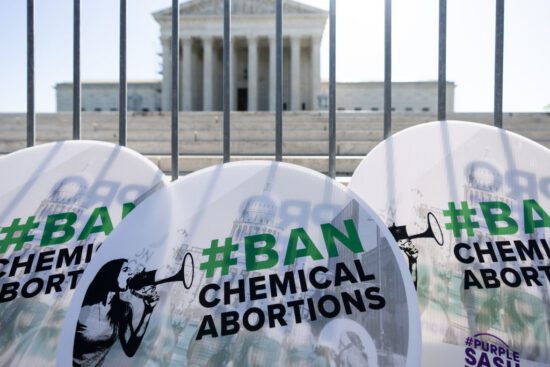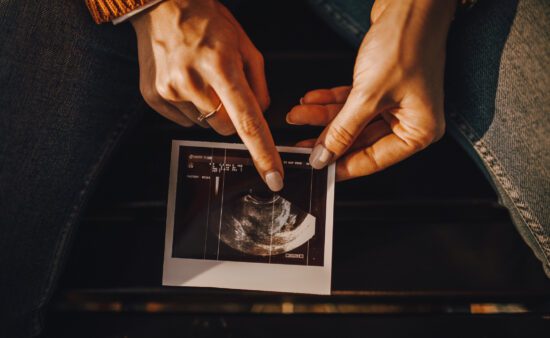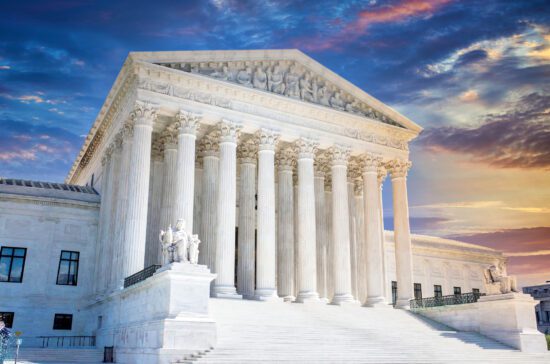On Aug.16, the 5th U.S. Circuit Court of Appeals ruled that important safety precautions surrounding the use of the chemical abortion drug, mifepristone, must be reinstated, drastically restricting the availability of this harmful drug. The court’s decision will not immediately go into effect due to an earlier ruling from the Supreme Court which temporarily allows mifepristone to remain on the market with no restrictions while litigation proceeds. It is likely that the Biden administration will appeal this ruling and the Supreme Court will weigh in on the merits of this case.
If upheld, this ruling will reinstate key safety measures such as:
- limiting the use of the drug to the first 7 weeks of pregnancy,
- ending mail-order chemical abortions,
- and requiring in-person medical visits prior to the drugs being prescribed.
Chemical abortions account for a majority of all abortions in the U.S., particularly in states where abortion has been restricted or banned following the Dobbs decision.
What is this chemical abortion drug case about?
In November 2022, Alliance Defending Freedom filed suit against the FDA on behalf of four pro-life medical groups. The suit claims that the FDA “failed America’s women and girls when it chose politics over science and approved chemical abortion drugs for use in the United States. And it has continued to fail them by repeatedly removing even the most basic precautionary requirements associated with their use.”
These pro-life groups argue that the FDA was wrong to grant the chemical abortion drug mifepristone fast-tracked approval back in 2000. The complaint continues:
The only way the FDA could have approved chemical abortion drugs was to use its accelerated drug approval authority, necessitating the FDA to call pregnancy an “illness” and argue that these dangerous drugs provide a “meaningful therapeutic benefit” over existing treatments.
But pregnancy is not an illness, nor do chemical abortion drugs provide a therapeutic benefit over surgical abortion. In asserting these transparently false conclusions, the FDA exceeded its regulatory authority to approve the drugs.
Currently, 1 in 5 women who take the drug will experience complications that require further medical attention. The case argues that the disposal of original safety precautions that accompanied the drug’s initial approval have led to increased danger to the women and girls who take mifepristone.
In 2016, the FDA:
- expanded the availability of chemical abortion drugs from 7 weeks of pregnancy up to 10 weeks of pregnancy,
- changed the dosing regimen,
- reduced the number of in-person doctor visits from three to one,
- expanded who could prescribe and administer chemical abortion drugs beyond medical doctors,
- and eliminated the requirement for prescribers to report non-fatal complications from chemical abortion drugs.
Then, in 2021, the FDA removed the requirement of in-person dispensing, allowing for abortion drugs to be accessed through the mail and telemedicine without a woman ever seeing a doctor in-person.
Why now?
Though it is unusual that this case is only now being argued over a drug approved 23 years ago, it comes after more than two decades of continued work by the petitioners against the approval of mifepristone.
- In 2002, the petitioners submitted a citizen petition to challenge the FDA’s approval.
- It was not until 2016 that the FDA denied the petition.
- In 2019, the petitioners filed a new citizen petition to challenge the FDA’s 2016 changes.
- In 2021, on the same day the FDA changed the in-person dispensing requirement, it denied the citizen petition.
- Following the denial, the petitioners were finally able to file suit against the FDA in November 2022.
What happens next?
This case now likely heads on appeal to the full 5th Circuit and then almost certainly back to the U.S. Supreme Court. The court’s previous 7-2 ruling in April was narrowly focused on the availability of mifepristone as litigation proceeded and did not look at the broader merits of the case. At this time, it is unclear how quickly the court could hear and decide this case.
In anticipation of that ruling, some abortion advocates have already begun to stockpile the drug in anticipation of its potential removal from the market. Others have suggested that the medication abortion protocol could be changed to just include misoprostol, the other drug in the current two-step protocol, even though this practice is known to cause increased cramping, bleeding, and potential complications for women.
Southern Baptists care about the sanctity of life and dignity of all people, including the preborn. We also care about the health, safety, and welfare of women who have experienced harmful and serious medical complications from these drugs at the hands of the predatory abortion industry.
If upheld, this decision from the 5th Circuit will save more preborn lives and protect women from the dangers intrinsic to chemical abortions. While we will continue to work toward a day when chemical abortions are no more, today’s ruling is a step forward in our work to build a true culture of life and to protect the health, safety, and welfare of women and girls.











